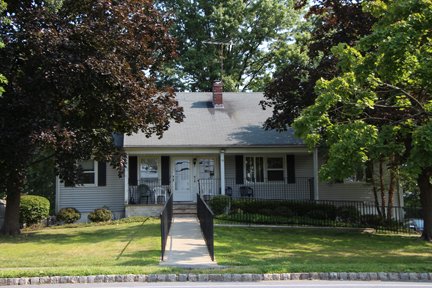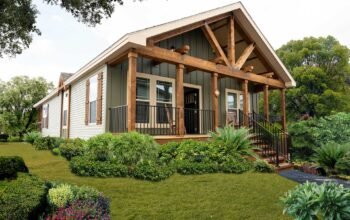When searching for “group homes near me,” it’s essential to understand what group homes offer and how to find a facility that best meets the needs of those who will reside there. Group homes provide a supportive, communal living environment for individuals who require assistance with daily activities, whether due to age, disability, mental health conditions, or developmental disorders. This guide explores the various aspects of group homes, from their purpose and benefits to tips for selecting the right one.
Understanding Group Homes and Their Purpose
A group home is a residential facility that provides a shared living space for individuals who need ongoing support. These homes typically offer assistance with daily living activities, such as bathing, dressing, meal preparation, and transportation. Group homes differ from other types of residential care because they prioritize a communal atmosphere, fostering social connections among residents and promoting a sense of independence within a supervised environment.
Group homes often serve a range of populations, including seniors, individuals with intellectual or developmental disabilities, and those struggling with mental health issues. The primary goal of these homes is to offer a stable, supportive environment that balances independence with the necessary care. In a group home setting, residents have the opportunity to form friendships, engage in activities, and develop life skills with the support of trained staff.
Types of Group Homes
Group homes are tailored to meet the specific needs of different groups, and understanding these distinctions is crucial when choosing the right facility. Here are a few common types:
Group Homes for the Elderly: These homes cater to older adults who may not require intensive medical care but still need assistance with daily tasks. Residents benefit from a community setting that allows them to maintain social connections and engage in activities while receiving support as needed.
Group Homes for Individuals with Developmental Disabilities: These homes support individuals with conditions like Down syndrome, autism, or other intellectual and developmental disabilities. Staff in these homes provide customized assistance, helping residents develop life skills, foster independence, and improve their quality of life through structured activities and therapies.
Mental Health Group Homes: Designed for individuals managing mental health conditions, these group homes provide a safe space where residents receive supervision, counseling, and a structured environment to help them cope with daily life challenges. Mental health group homes often include therapy, medication management, and social activities.
Group Homes for Youth: This category of group homes is typically geared toward children and adolescents who cannot live with their families due to various reasons, including foster care, abuse, or behavioral issues. Youth group homes offer a nurturing, supportive environment that encourages personal growth and stability.
Understanding the differences among these types of group homes helps to make informed decisions based on the unique needs of the resident.
Benefits of Choosing a Group Home
Group homes provide a range of benefits to residents and their families. One of the primary advantages is the opportunity for individuals to live in a community-oriented setting that promotes socialization. By living alongside peers, residents develop friendships and build a sense of belonging, which positively impacts their mental well-being.
Also, it must be pointed out that the facilities are very likely to organize the day and week, and this may be important for persons, who need a regular schedule.The daily schedule includes meals, activities, and personalized care, which helps residents feel safe and supported. Staff members in group homes are typically trained in various caregiving skills, allowing them to meet the physical, emotional, and medical needs of each resident.
Another significant benefit of group homes is the focus on independence and personal growth. Unlike institutional settings, group homes encourage residents to make choices about their daily lives, participate in household tasks, and engage in skill-building activities. This approach fosters self-confidence and helps residents feel empowered in managing their lives.
Finding Group Homes Near You: Steps and Considerations
Finding the right group home for yourself or a loved one can feel overwhelming. Here are some key steps and factors to consider when looking for “group homes near me”:
Research and Referrals: Start by conducting thorough research on group homes in your area. Local health departments, social services, and online resources are good places to begin. Additionally, asking for referrals from medical professionals, therapists, or community organizations can provide reputable recommendations.
Evaluate Care Standards: Not all group homes operate at the same standard. It’s essential to evaluate each facility’s credentials, including staff qualifications, resident-to-staff ratios, and the facility’s approach to individualized care. Online reviews, testimonials, and regulatory reports are valuable resources for gaining insight into a home’s reputation.
Touring the Facility: Visiting a group home in person allows you to assess the environment, cleanliness, and atmosphere firsthand. Take note of how staff members interact with residents and observe the overall ambiance. During your tour, ask about activities, meals, safety protocols, and emergency procedures to ensure the home meets your expectations.
Assessing Costs and Financial Assistance: Group homes vary widely in cost, depending on the level of care provided and location. Be sure to inquire about pricing, payment options, and potential financial assistance. Medicaid, Supplemental Security Income (SSI), and other government programs may help cover some costs. Consulting with a social worker or financial advisor can be helpful in navigating these options.
Evaluating Compatibility: Ensuring the compatibility of the resident with the group home environment is crucial. Each group home has a unique culture and approach, so it’s essential to determine whether it aligns with the resident’s preferences, personality, and needs. Some homes emphasize structured routines and quiet environments, while others may encourage more independence and flexibility.
Life in a Group Home: Daily Routines and Activities
The daily routines and activities in a group home play a significant role in enhancing residents’ quality of life. Most group homes prioritize structured schedules, which provide residents with a sense of stability. This structure often includes set meal times, household chores, recreational activities, and personal care routines.
Recreational activities are also a vital part of life in a group home, as they help residents stay engaged, active, and mentally stimulated. Activities might include exercise classes, arts and crafts, games, movie nights, and group outings. These activities provide enjoyment and allow residents to form meaningful connections with others. For those in specialized group homes, activities are often tailored to residents’ abilities and interests, ensuring everyone can participate in ways that foster growth and self-esteem.
Ensuring Quality of Life in Group Homes
The quality of life in a group home can be influenced by various factors, including the facility’s approach to individualized care, the quality of the staff, and the social atmosphere within the home. High-quality group homes take a person-centered approach, where each resident’s unique needs, preferences, and goals are taken into account. Staff members play an integral role in this approach by building positive relationships with residents and encouraging independence.
Additionally, many group homes offer access to various support services, such as counseling, medical care, and rehabilitation programs. These services help residents manage their health and emotional well-being, contributing to an overall higher quality of life. For residents with complex needs, homes that provide access to specialized care and therapies are ideal.
The Right Ideas to Think About for You or Your Loved One
Choosing the right group home involves careful consideration of the resident’s needs, preferences, and overall quality of care. Each step, from initial research to touring facilities and evaluating staff qualifications, plays an essential role in the decision-making process. By focusing on both practical factors (such as cost and location) and personal factors (like compatibility and quality of life), families can make informed choices that support their loved ones’ well-being.
In the search for “group homes near me,” prioritize homes that provide a balance of care, independence, and a sense of community. With the right group home, residents can enjoy a fulfilling life with access to the support and companionship they need.
Conclusion
Choosing the right group home is a significant decision that can greatly impact the quality of life for you or your loved one. Group homes offer a unique blend of support, community, and independence, making them an ideal choice for individuals who need assistance with daily activities but still value a sense of autonomy. By understanding the different types of group homes, assessing care standards, and carefully evaluating each facility, you can find a home that best suits the resident’s needs and preferences. In a well-chosen group home, residents can thrive in a supportive, social environment, surrounded by trained staff who prioritize their well-being and personal growth. With thorough research and careful consideration, the journey of finding “group homes near me” can lead to a compassionate, enriching home that fosters a fulfilling and stable life.
FAQ’s
1. What is a group home, and who can benefit from it?
A group home is a residential facility offering communal living and support services for individuals who need assistance with daily activities. This includes seniors, individuals with intellectual or developmental disabilities, and those managing mental health issues. Group homes provide a stable, supportive environment that fosters independence while offering necessary care, making them ideal for people who require some level of supervision and assistance.
2. What types of group homes are available?
Group homes cater to various populations and needs. Common types include group homes for the elderly, individuals with developmental disabilities, mental health support, and youth. Each type is designed to address specific requirements, from assistance with daily living activities to therapeutic support, fostering a safe, nurturing environment tailored to the residents’ needs.
3. What are the main benefits of living in a group home?
Group homes provide a supportive community setting where residents can build friendships, engage in structured activities, and maintain a sense of independence. They offer personalized care and a routine that includes meals, recreational activities, and skill-building opportunities. This supportive environment enhances socialization, emotional well-being, and personal growth, contributing to a higher quality of life.
4. How can I find a quality group home near me?
To find a suitable group home, start by researching options in your area, seeking referrals from healthcare providers, and reading online reviews. Visiting each facility is crucial to assess its atmosphere, cleanliness, and staff interaction with residents. Additionally, inquire about care standards, activities, and costs to ensure the home aligns with the resident’s needs and financial situation.
5. What factors should I consider when choosing a group home?
When selecting a group home, consider the facility’s care standards, staff qualifications, resident-to-staff ratio, and overall environment. Ensure compatibility with the resident’s personality and needs, as some homes offer structured routines while others allow more flexibility. Cost, location, and the availability of financial assistance are also essential factors to review before making a decision.

